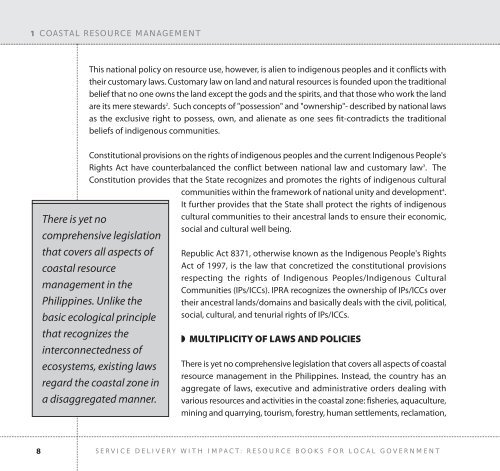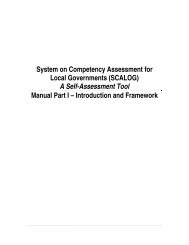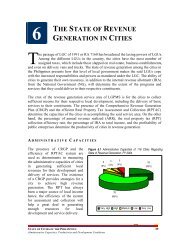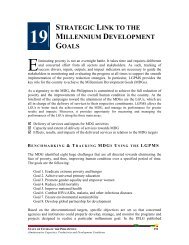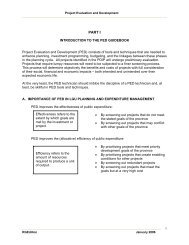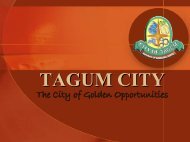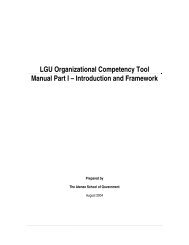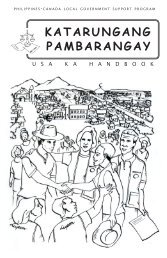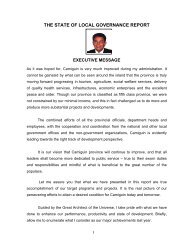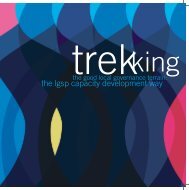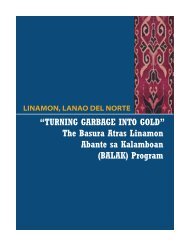Coastal Resource Management - LGRC DILG 10
Coastal Resource Management - LGRC DILG 10
Coastal Resource Management - LGRC DILG 10
- No tags were found...
You also want an ePaper? Increase the reach of your titles
YUMPU automatically turns print PDFs into web optimized ePapers that Google loves.
1 COASTAL RESOURCE MANAGEMENTThis national policy on resource use, however, is alien to indigenous peoples and it conflicts withtheir customary laws. Customary law on land and natural resources is founded upon the traditionalbelief that no one owns the land except the gods and the spirits, and that those who work the landare its mere stewards 2 . Such concepts of "possession" and "ownership"- described by national lawsas the exclusive right to possess, own, and alienate as one sees fit-contradicts the traditionalbeliefs of indigenous communities.Constitutional provisions on the rights of indigenous peoples and the current Indigenous People'sRights Act have counterbalanced the conflict between national law and customary law 3 . TheConstitution provides that the State recognizes and promotes the rights of indigenous culturalcommunities within the framework of national unity and development 4 .It further provides that the State shall protect the rights of indigenousThere is yet nocomprehensive legislationthat covers all aspects ofcoastal resourcemanagement in thePhilippines. Unlike thebasic ecological principlethat recognizes theinterconnectedness ofecosystems, existing lawsregard the coastal zone ina disaggregated manner.cultural communities to their ancestral lands to ensure their economic,social and cultural well being.Republic Act 8371, otherwise known as the Indigenous People's RightsAct of 1997, is the law that concretized the constitutional provisionsrespecting the rights of Indigenous Peoples/Indigenous CulturalCommunities (IPs/ICCs). IPRA recognizes the ownership of IPs/ICCs overtheir ancestral lands/domains and basically deals with the civil, political,social, cultural, and tenurial rights of IPs/ICCs.◗ MULTIPLICITY OF LAWS AND POLICIESThere is yet no comprehensive legislation that covers all aspects of coastalresource management in the Philippines. Instead, the country has anaggregate of laws, executive and administrative orders dealing withvarious resources and activities in the coastal zone: fisheries, aquaculture,mining and quarrying, tourism, forestry, human settlements, reclamation,8SERVICE DELIVERY WITH IMPACT: RESOURCE BOOKS FOR LOCAL GOVERNMENT


